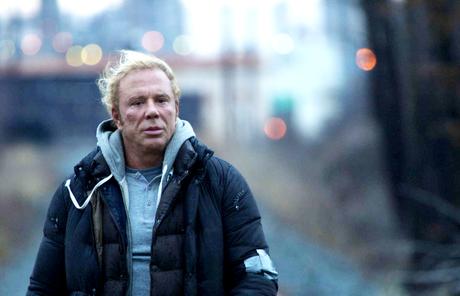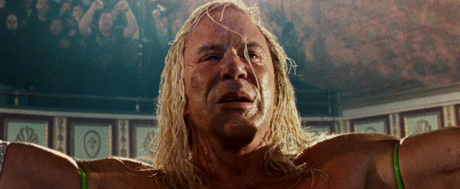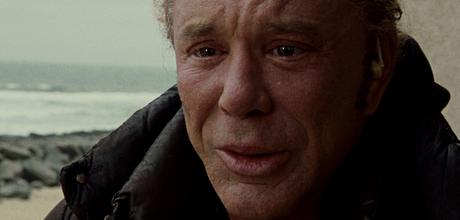 Kindle
Kindle If one decade ago I had been told, in light of Sin City and other films of the sort, that I’d ever be moved by Mickey Rourke on the screen, I would’ve not believed it. But welcome be the news: at this age (his, but also mine) it’s comforting to see that the autumn of life can still be very productive — when not terrific.
If one decade ago I had been told, in light of Sin City and other films of the sort, that I’d ever be moved by Mickey Rourke on the screen, I would’ve not believed it. But welcome be the news: at this age (his, but also mine) it’s comforting to see that the autumn of life can still be very productive — when not terrific.
But it’s not always like that, of course; and such is the case of the main character of The wrestler, Randy ‘The Ram’ Robinson, a decaying professional pushing sixty who, in the twilight of his career goes over the rings of the State performing in third class fights. When the many blows he’s taken along perhaps too many years in such job start passing him a serious bill, he tries to put some order in his life — only to find that it’s not so easy to make do for all his past mistakes.

Though the background topic, the wrestling, is as “thuggy” a sport (if we can call it such) as the ambiences this Newyorker ex-boxer actor has us used to in his films, this particular one turns out to feature a deep humane nature. Despite the “shoddy” — or even sordid — we can think of his profession, and despite the trophies he’s won, Randy is a good-natured fellow in his private life and even backstage; not the idealized (or even heroic) style of a Rocky Balboa, but in a simple way, sporting an affable humor, devoid of racousness and loudness, moderately kind and without the arrogance and toughness we assume those people to have (well understood, except for the mandatory interpretative side of a wrestler when performing on stage). In this sense, the producers have got it right when showing us the two sides of the character without resourcing to scenographic artifice: when on the ring, he exaggerates gestures, movements and expressions as the public expects him to do; but outside, on the street, he behaves with surprising normality and we see the flesh and blood man, with his ailments and sores whereof he’s not embarrassed or ashamed, and handles without drama.

In short, a brilliant and powerful production by Darren Aronofsky for enjoying the good cinema that every now and then — and perhaps by accident — the Californian movie industry provides us with.

